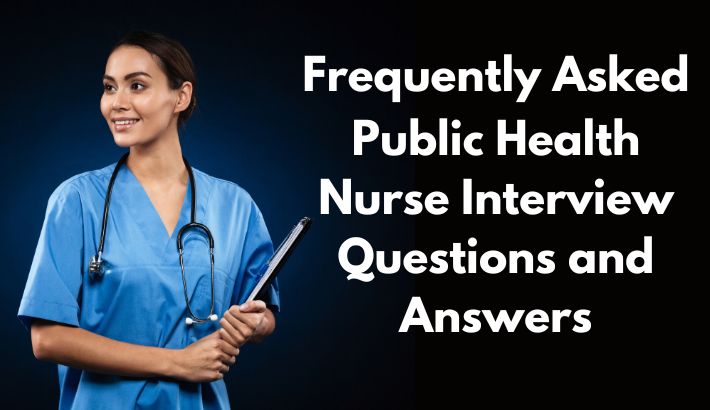Preparing for a Public Health Nurse interview can be daunting, especially for those entering this very important field. Community Health Nurses play a crucial role in promoting health, preventing diseases, and advocating for community well-being. This guide offers a series of sample interview questions and straightforward answers to help candidates show their experiences and motivations effectively. With these insights, aspiring Public Health Nurses can approach their interviews with confidence and clarity.
Common Public Health Nurse Interview Questions and Answers
1. What motivated you to become a Public Health Nurse?
I was inspired to become a Public Health Nurse because I wanted to make a meaningful impact in communities. I believe that education and prevention are key to improving health outcomes, and working directly with people allows me to contribute to healthier lives.
2. Can you describe your experience in community health?
In my previous role, I worked on various community health initiatives, such as immunization drives and health education workshops. Collaborating with local organizations to address health disparities has shown me how important it is to understand and meet the specific needs of the community.
3. How do you handle health education for diverse populations?
I focus on understanding the cultural backgrounds and health literacy levels of the populations I serve. By using simple language and visual aids, and engaging community leaders, I ensure that the information I provide is relevant and accessible. Building trust is essential.
4. What strategies do you use for disease prevention?
My strategies for disease prevention include promoting vaccinations, conducting screenings, and providing health education. I organize workshops and community events that emphasize healthy lifestyle choices, including nutrition and physical activity.
5. How do you stay updated on public health trends?
I stay informed by reading public health journals, attending workshops, and participating in online webinars. Networking with fellow health professionals also helps me keep up with new research and best practices.
6. Describe a challenging situation you faced and how you managed it.
I once faced a situation where a community had low vaccination rates due to misinformation. To address this, I organized informational sessions where healthcare professionals could answer questions and provide accurate information. We also shared resources to counter the misinformation, which helped build trust and increase vaccination rates.
7. How do you approach collaboration with other healthcare professionals?
I believe in fostering open communication and aligning on shared goals. I regularly attend meetings with other healthcare providers. And, I share insights and coordinate our efforts on community health projects, which enhance teamwork and improve outcomes.
8. What role do you think public health plays in overall healthcare?
Public health is essential because it focuses on prevention and community wellness rather than just treating illness. By addressing social determinants of health and promoting healthy practices, we can reduce healthcare costs and improve the quality of life for everyone.
9. Can you give an example of a successful health program you’ve implemented?
I led a program aimed at reducing childhood obesity by partnering with local schools to provide nutrition education and organize community fitness events. After a year, we saw increased awareness and healthier habits among participants, confirmed by follow-up surveys.
10. Do you have any questions for us?
Yes, I would like to learn more about the current community health initiatives your organization is involved in and how I can contribute to those efforts.
11. How do you assess community health needs?
To assess community health needs, I conduct surveys, and focus groups, and analyze health data from local health departments. Engaging with community members directly allows me to understand their specific challenges and priorities, which informs the development of targeted health programs.
12. What role does data play in your public health practice?
Data is crucial in public health practice as it helps identify health trends, measure outcomes, and allocate resources effectively. I use data to inform decisions, evaluate the success of programs, and advocate for necessary changes in health policy.
13. How do you handle conflicts with colleagues or community members?
I approach conflicts with an open mind and focus on clear communication. I listen actively to understand the other person’s perspective and work collaboratively to find a resolution that meets everyone’s needs. Staying calm and respectful is key to effective conflict resolution.
14. Can you share an example of a public health issue you are passionate about?
I am particularly passionate about addressing mental health in underserved communities. I believe that mental health is often overlooked, and I advocate for increased awareness, resources, and access to mental health services. I’ve organized workshops to promote mental well-being and reduce stigma.
Related Resources –
